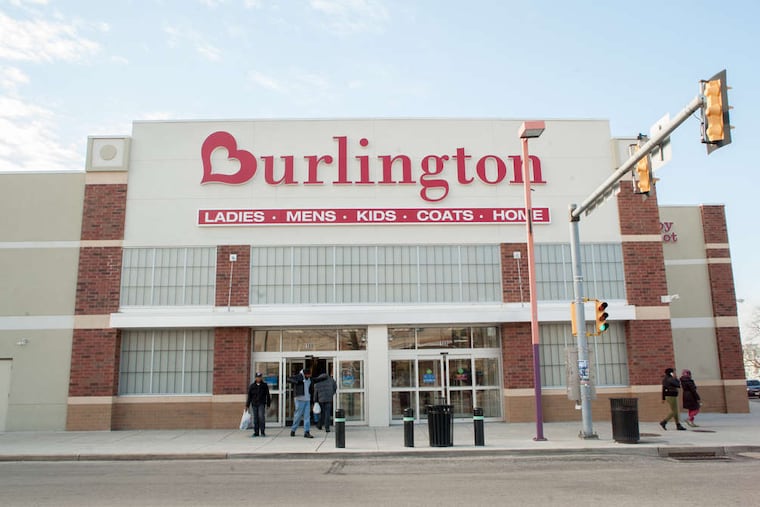No Toys R Us means Burlington Stores can sell more toys, children’s clothes
“We’ve always been known for our baby business,” Chief Executive Officer and Chairman Thomas A. Kingsbury told analysts Thursday, “and we’ve been able to really capitalize on what’s currently happening in the marketplace.”

Baby Depot, Burlington Stores’ selection of baby clothes, strollers, toys, and other accessories, is one of the New Jersey company’s top-selling categories, especially after the Toys R Us liquidation.
Burlington now displays its toys “front and center” in stores, where as in the past they would be moved to the back of the store once the holiday season ended, Thomas A. Kingsbury, Burlington Stores’ chief executive officer and chairman, told analysts last week.
“We’ve been able to really capitalize on what’s currently happening in the marketplace,” Kingsbury said referring to the bankrupt competitor, which was liquidated in 2018 — Toys R Us now operates as Tru Kids under a new ownership, which has plans to revive the brand in time for 2019 holiday sales.
Last week, Burlington said the increase in total sales by 7.3 percent to $1.6 billion in the first quarter of 2019 was in part due to strong sales at Baby Depot stores.
Burlington also views former Toys R Us locations as valuable real estate and opened three stores in the former toy retailer’s stores in late 2018 and has plans to open more, according to the CEO.
“Clearly, the disruption in this business caused by the Toys R Us bankruptcy has created an opportunity that we have begun to capitalize on,” Kingsbury told analysts in March. “And we see additional opportunity for outpaced growth over the next few years.”
It’s not just Burlington Stores that’s benefiting from Toys R Us closure, which left an estimated $1.3 billion void in the market, according to real estate firm CBRE.
Walmart and Target expanded their toy departments, Amazon launched a toy catalog, Party City opened Toy City pop-ups, and FAO Schwarz reopened its Manhattan store. Still, U.S. retail sales of toys declined 2 percent to $21.6 billion in 2018 after four years of industry growth, the NPD Group reported in January.
“Nobody is not going to purchase a toy because Toys R Us isn’t there,” Adrienne Appell, a Toy Association spokesperson, told The Inquirer last year. “You’re going to see a lot more toys in a lot more places.”
Burlington is based in Burlington, N.J., and has 684 stores in 45 states and Puerto Rico. It made its name as a coat-focused off-price store, but transitioned to more of a department store model in 2006. When that didn’t work, the company focused on being a well-known off-price retailer, Wells Fargo Securities analysts wrote in a Thursday note to investors.
The company employs about 44,000 people, including part-time and seasonal employees, as of Feb. 2, according to the company’s annual report.
Burlington announced last month that Michael O’Sullivan, most recently the president and chief operating officer at Ross Stores will become CEO, replacing Kingsbury, who will move into the role of executive chairman of the company’s board.
“As BURL strives to close the gap between themselves and their larger peers, taking on best-in-class leadership is certainly a strong step along the right direction,” according to the note from Wells Fargo Securities analysts.